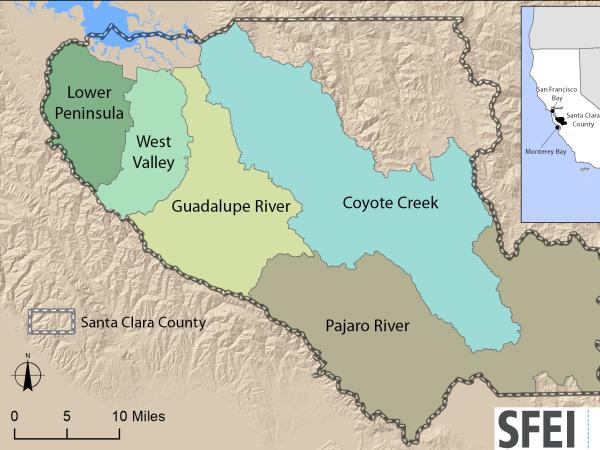California Rapid Assessment Method (CRAM)
SFEI develops, hosts and manages the California Rapid Assessment Method (CRAM) website and its associated database containing over 5,000 landscape assessments from across the State. The comprehensive site features statewide support for CRAM data managment, training, documentation, and reporting tools to monitor and assess over seven kinds of wetlands using standardized rapid assessment protocols developed by the CRAM Steering Committee (Level-2 Committee). Appointed by the California Wetland Monitoring Workgroup (CWMW), the Level-2 Committee meets quarterly to review and maintain CRAM's field manuals, training procedures, data management, and reporting tools. The L-2 Committee is chaired by a staff member from the State Water Board and includes wetland scientists and technical staff from state and federal agencies with regulatory or managment responsibility for the health of aquatic resources as well as from academia and other scientific organizations across the state.
CRAM is a cost-effective and scientifically defensible rapid assessment method for monitoring and assessing the ecological conditions of wetlands throughout California. It takes less than half a day to assess a wetland area, and is designed evaluate the condition of the wetland based on its landscape setting, hydrology, physical structure and biological structure. Because the methodology is standardized for over seven types of wetlands, ecological condition scores can be compared at the local, regional and statewide landscape scales.
CRAM can also be used to assess the performance of compensatory mitigation projects and restoration projects. The easy-to-use, online data entry forms ensures that all of the appropriate site information and field data associated with CRAM assessments can be archived online and access by environmental managers, planners, and stakeholders to inform wetland management and planning decisions. The ability to draw the CRAM assessment area online using an aerial image of the site, makes it easy for CRAM practitioners to enter their site information making it available on EcoAtlas (if allowed by the landowner). Public CRAM assessment areas are also available as a web service, which affords a broad degree of availability and transparency to support contemporary open-data initiatives.
Dates:
2002 to 2018
Partners:
Funders:
Associated Staff:
Project Site:
Subproject(s):
Associated Data:
Programs and Focus Areas:
Environmental Informatics Program
Resilient Landscapes Program
Wetland Monitoring & Assessment













